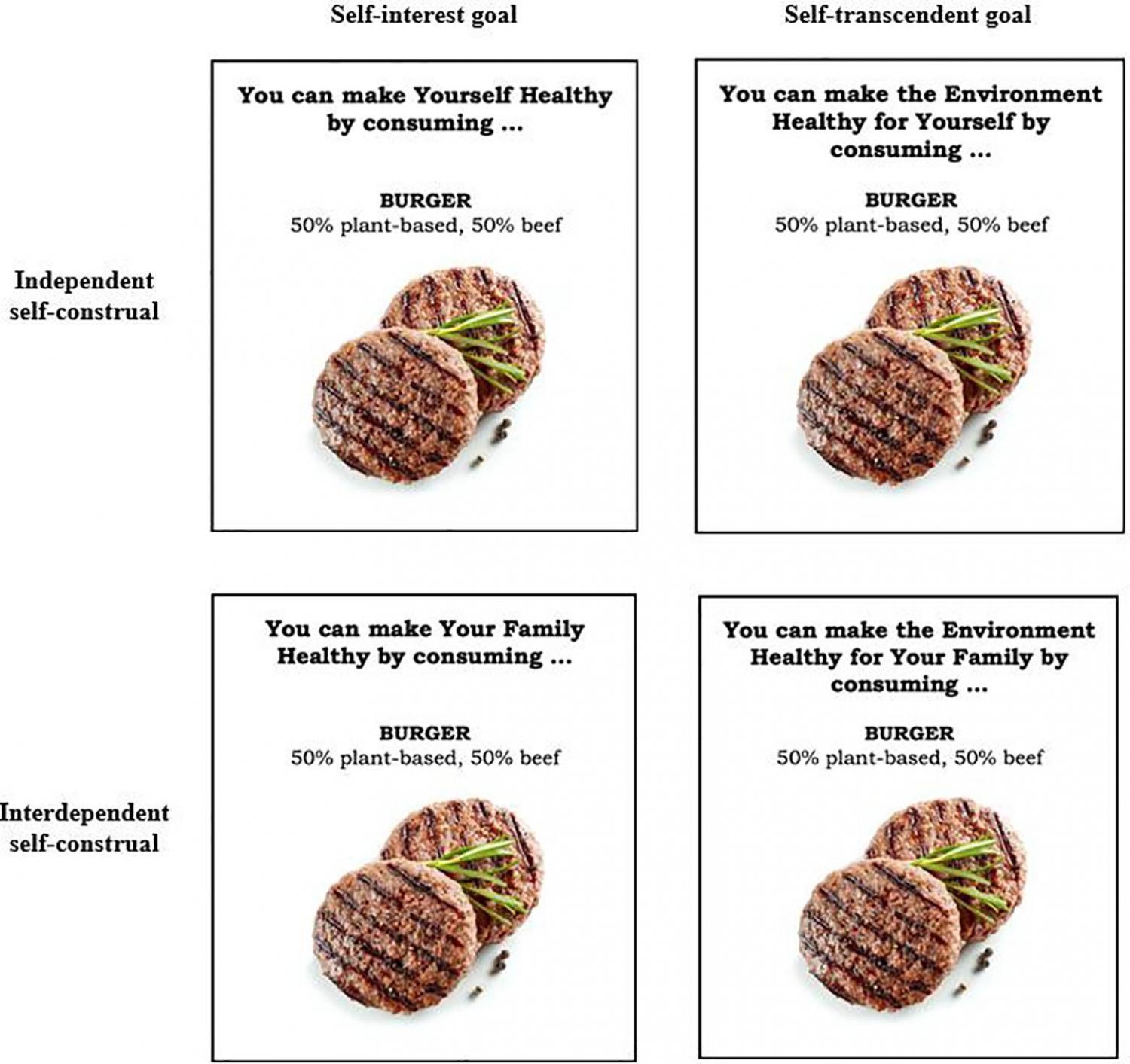
Elsevier, Food Quality and Preference, Volume 94, December 2021
Transition towards more sustainable diets is imminent and marketers are looking for guidance on type of the advertising appeal that could effectively persuade consumers to buy products that could support this transition, such as hybrid products. While prior research has investigated the value of self-interest/-transcendent goal appeals and independent/interdependent self-construal, only a small number of studies have investigated these factors in combination. Therefore, we conducted a representative cross-national study involving almost 2000 consumers from Denmark, Spain, and the UK, to experimentally investigate the effect of self-interest (health) vs. self-transcendent goal (environment) and independent vs. interdependent self-construal on consumers’ attitudes. The results showed that perceived product quality mediates the effect of goals on consumers’ product attitudes, such that messages focused on the environment are more effective when interdependent self-construal is activated, while messages leveraging on health are more effective when independent self-construal is activated. This research suggests that advertising efforts and communication campaigns that rely on consumers’ goals should account for self-construal to induce higher levels of perceived product quality and efficiently boost consumers’ product attitudes and purchase behaviour.
